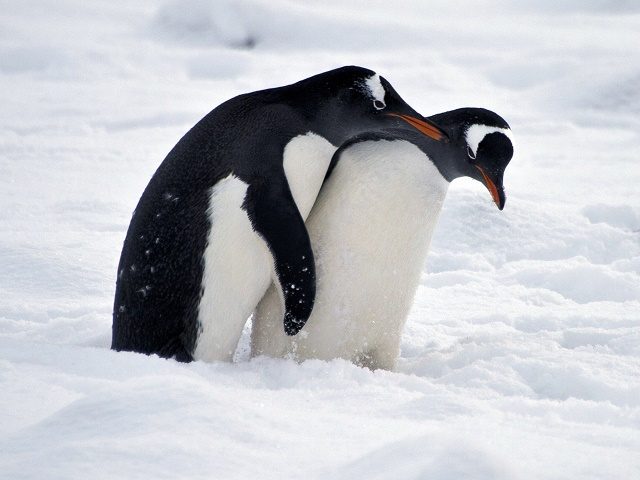Writing in the journal Nature, a group of scientists have documented that temperatures in the Antarctic Peninsula have been falling steadily for the last 18 years at the rate of nearly one degree Fahrenheit per decade, countering earlier warming trends.
During the second half of the 20th century, the Antarctic Peninsula experienced an extended warming period igniting fears of apocalyptic catastrophes like that depicted in the 2004 Hollywood climate change disaster film, “The Day After Tomorrow.” According to the new essay, however, titled “Climate science: Cooling in the Antarctic,” scientists are now saying that the warming trend was caused by natural factors and reversed itself again by natural causes just before the turn of the millennium.
Nature’s editor noted that although the Antarctic Peninsula is “frequently presented as a case study of rapid warming,” scientists John Turner and colleagues have now shown that warming trends have abated and “for the early years of the twenty-first century the peninsula has in the main been cooling.”
Many of the fears associated with the rapid warming of the Peninsula, such as the regional retreat of glaciers and disintegration of floating ice shelves, the authors suggest, were not in fact due to “drivers of global temperature change” as previously believed, but were rather caused by a particular microclimate associated with “extreme natural internal variability of the regional atmospheric circulation.”
While not abandoning their belief in global warming, the scientists admit that what was once considered one of the most remarkable cases of accelerated anthropogenic climate warming was apparently not due to human causes at all but rather to natural climate swings. The scientists observe that “both the warming since the 1950s and the cooling since the late 1990s are entirely consistent with natural climate variability.”
So despite the fact that climate change activists continue to push the Antarctic Peninsula as a model case urging radical modifications to human behavior, the results of the recent study would suggest that such a reaction is inconsistent with the facts.
“The annual mean temperature has decreased at a statistically significant rate, with the most rapid cooling during the Austral summer,” the Nature article states. “Temperatures have decreased as a consequence of a greater frequency of cold, east-to-southeasterly winds, resulting from more cyclonic conditions in the northern Weddell Sea associated with a strengthening mid-latitude jet.”
At the Paris climate summit last December (COP 21), some 200 governments agreed to the strongest program ever to combat global warming, with a mid-term goal of phasing out fossil fuels by 2100.
Latest studies would seem to show that, at least for the Antarctic Peninsula, no matter what humans do, climate will continue to change as it always has.
Follow Thomas D. Williams on Twitter Follow @tdwilliamsrome

COMMENTS
Please let us know if you're having issues with commenting.